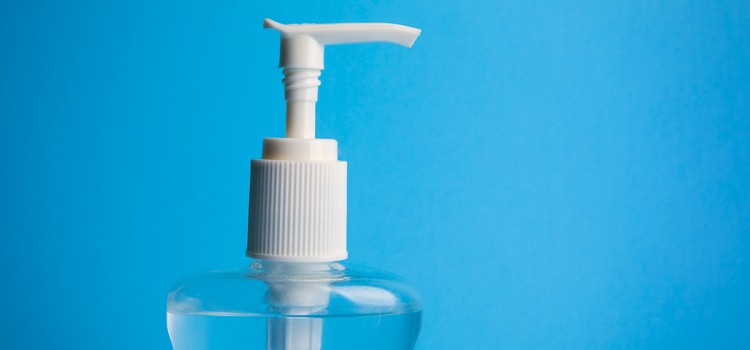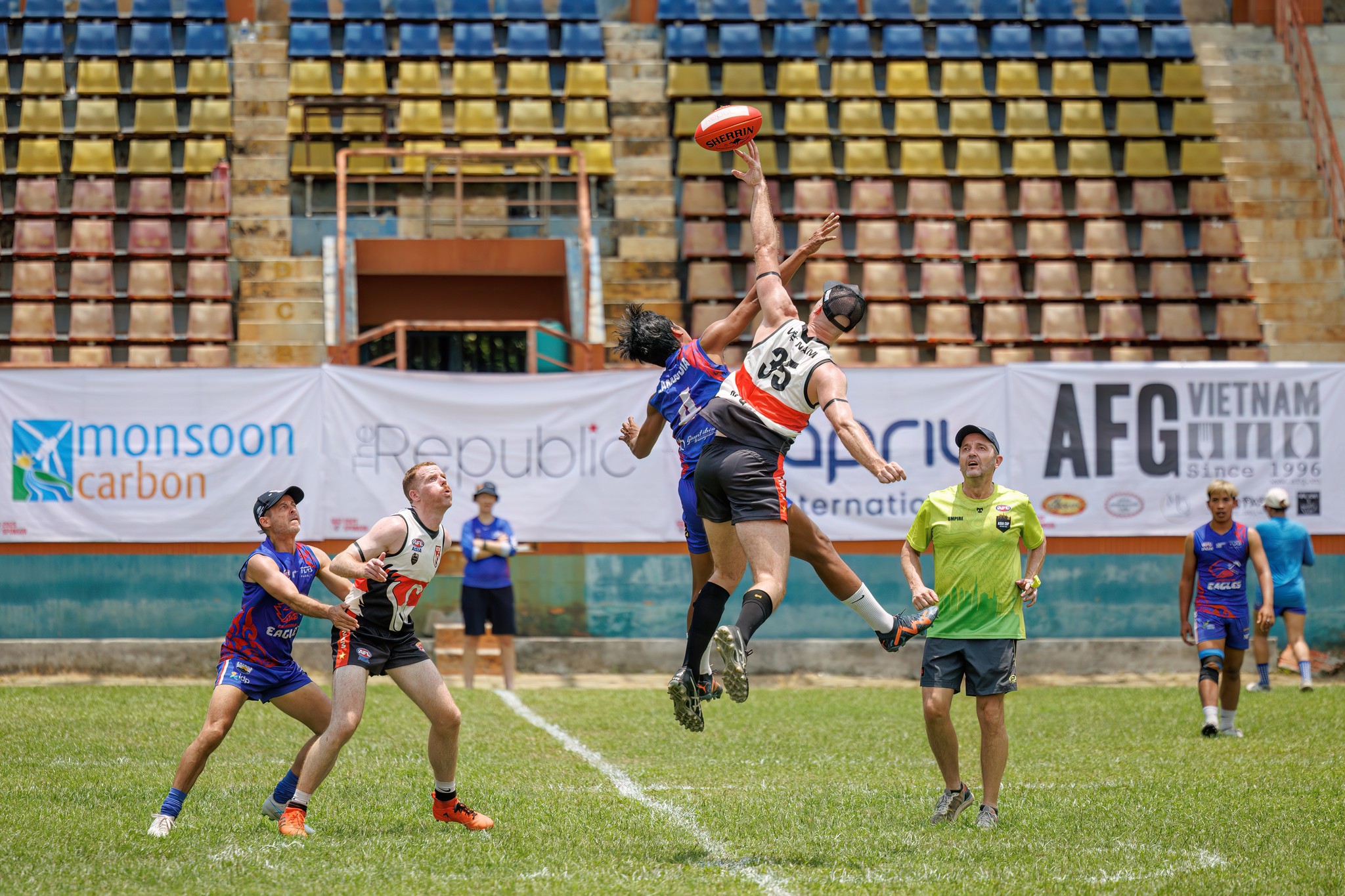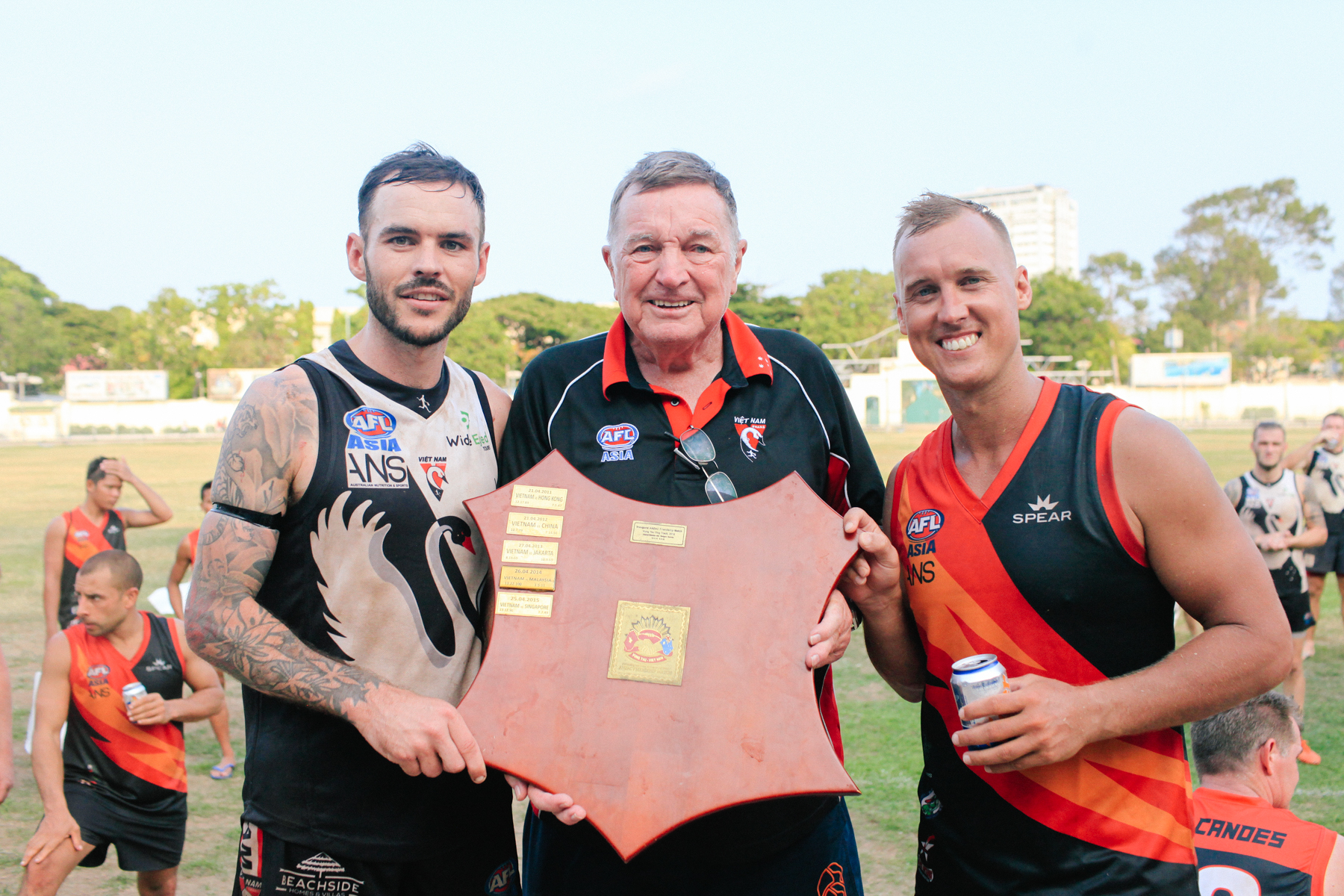The health and safety of the footy club is a key priority for the Swans, whether you’re a member, player, volunteer or fan of our Club and other clubs around AFL Asia. The coronavirus outbreak presents a rapidly changing situation and we’re in regular contact with key partners and stakeholders during this time.
Suspension and Postponement of Planned Activities
Given the current situation in Vietnam, the Club is suspending training and postponing all planned games for the first half of the season. This includes the plans for ANZAC Day on 25 April and the planned tour to Laos for the Indochina Cup on 31 May.
Obviously, this was a tough decision to make but it is necessary. We will keep you updated over the coming weeks.
Supporting the Community during this Time
Coronavirus is certainly impacting the economy and society. Please try to support the community, including our sponsors during this time. The tourism and food & beverage industries will be particularly hard hit during the suspension of tourist visas to Vietnam.
Guidance for Members
We encourage members to follow advice from reputable sources like the World Health Organisation and Centre for Disease Control, in addition to local and national governments.
Consider the following general advice:
- Frequently clean your hands in soap and water, or with an alcohol-based hand rub.
- If you cough or sneeze, cover your mouth and nose with a flexed elbow or tissue. Throw the tissue away immediately and wash your hands.
- Avoid contact with anyone who has a fever or cough.
- Avoid unnecessary contact with ‘high touch’ areas such as handrails, lift buttons, door handles, surfaces etc. Clean and disinfect these surfaces regularly.
- If you have fever, cough and difficulty breathing, seek medical care.
- If you have a persistent fever or cough, you need to self isolate effectively.
Social Distancing and Self Isolation are Important
There is a good article on social distancing over at the Atlantic. If possible, work remotely and minimise contact with others, especially groups. This approach is key to stopping the spread of the virus.
Self isolation is important for those with fever or cough symptoms, and those who have been in contact with someone who is potentially carrying the virus. To effectively self isolate, an article from the BBC suggests:
From now on, if one person in a household starts to display flu-like symptoms – defined as a fever of above 37.8C or a persistent cough – everyone living there must stay at home for 14 days. This means avoiding leaving the house “even to buy food or essentials”. People may go out to do exercise, but only at a safe distance from others.
The person with the symptoms should stay in a well-ventilated room with a window that can be opened, and keep away from other people in the home. They should ask for help for groceries, other shopping or medication, which can be dropped off on the doorstep by friends, family or delivery drivers.
If someone is self-isolating and shares a kitchen, they should try to avoid using it when other people are there and take meals back to their room to eat. Clean all the surfaces at home with household cleaning products daily.
Although they might not be able to entirely separate themselves from family members or flatmates, the advice is to limit contact as much as possible. If possible, stay at least 2m (6ft) from other people they live with and sleep alone. Keep away from vulnerable people.
People living with someone in isolation should wash their hands often, using soap and water for at least 20 seconds – especially after coming into contact with them. Other people shouldn’t share towels, toiletries or other household items with someone in isolation, who should have a separate bathroom. If that is not possible, the isolated person should use the bathroom last, cleaning it thoroughly afterwards if they are able.





















